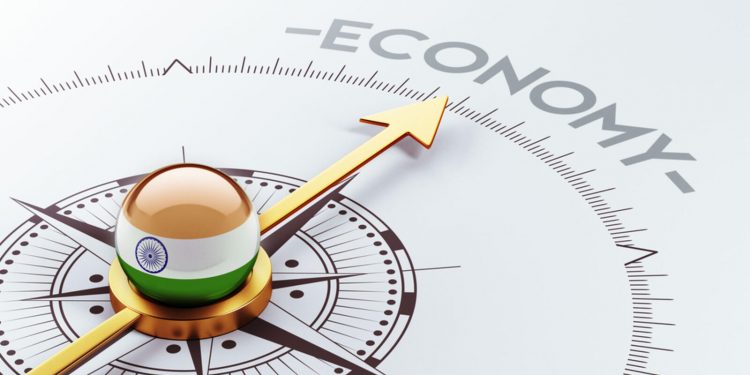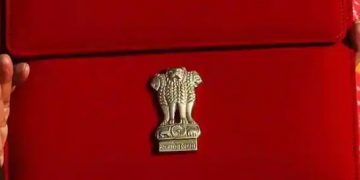New Delhi: Prime Minister Narendra Modi’s dream of India rising to a $5 trillion economy by 2025 is unrealistic though it will happen at some time, says Montek Singh Ahluwalia, a former Deputy Chairman of the Planning Commission.
His document prepared in 1990 largely influenced the economic reforms unveiled the next year, in his book “Backstage – The Story Behind India’s High Growth Years”. He is also extremely harsh on “two major policy mistakes” of the present government — demonetisation and the hasty implementation of GST.
To become a $5 trillion economy “calls for an average growth rate of about 9 per cent in real terms over the six-year period from 2019-20 to 2024-25. With growth below 5 per cent in 2019-20, and only a slow recovery expected next year, achieving an average of 9 per cent for the period as a whole is simply not credible. We will certainly get to $5 trillion, but it will be a few years later,” Ahluwalia writes in the book, which has been published by Rupa.
“A more realistic target would be to try to reach a growth rate of around 8 per cent per year as quickly as possible. This is certainly necessary if we want to continue to reduce poverty and generate the employment needed to satisfy our young and aspirational labour force. Is 8 per cent growth feasible? India did achieve GDP growth of 8.5 per cent in the first seven years of the UPA, but a return to that growth rate is easier said than done,” Ahluwalia warns.
India’s growth was at 6.8 per cent in 2018-19 and dropped to 5 per cent in 2019-20. It is expected to “strongly rebound” to 6-6.5 per cent in 2020-21 the Economic Survey tabled in Parliament January 31 said.
Demonetisation, Ahluwalia writes, “came as a complete surprise when the government on 8 November 2016 announced that all currency notes of denominations Rs 1,000 and Rs 500, accounting for 86 per cent of the value of currency with the public, were no longer legal tender. Holders of these notes were given up to 31 December to take the notes to banks to convert them into new notes. The decision was originally presented as a decisive attack on black money and corruption, but as that particular justification seemed difficult to sustain, several other justifications were advanced.”
“Raghuram Rajan, who was then governor of the RBI, was consulted informally about a possible demonetization and he had advised that any long-term benefits would not be worth the short-term costs. In any case, he counselled that if the government was determined to demonetise, there should be careful planning to ensure adequate supply of new notes. In fact, demonetisation was hastily announced a couple of months after Raghu’s term as governor came to an end.”
Rajan’s fears were “amply vindicated. People rushed to banks to exchange their holdings of old notes for new notes, but as there was a shortage of new notes, amounts handed over to banks could only be credited to their bank accounts, from which cash withdrawals were permitted on a restricted basis until the supply of new notes could catch up with demand. The shortage of cash disrupted agricultural markets and operations in the informal sector, both of which are highly cash-dependent”, Ahluwalia writes.
Eight months later, “the economy received a second jolt when the GST was introduced in July 2017. Unlike demonetization, which had very little support from professional economists, the GST was universally regarded as a major reform of the indirect tax system. It was expected to generate larger revenues, and also simplify the system but it failed on both counts because of a flawed design and poor implementation.”
Also, “frequent changes in the rates added to the confusion, giving the signal that rates could be adjusted through lobbying, which goes completely contrary to the signal of stability that GST should normally convey”, Ahluwalia maintains.
He also cautions against “strong centralised governments”, a scenario that is now unfolding in India.
“Strong centralised governments have some advantages but they also have a major disadvantage: the failure to provide room for different views. This reduces the likelihood that policy mistakes will be acknowledged and corrected.
“Manmohan Singh recognised the importance of encouraging free expression of views and descent in a liberal democracy. We are now about to go through a different experience with a government enjoying a strong majority and also one which was expected to rely on much greater centralisation of power in the PMO,” Ahluwalia maintains.
Ahluwalia concludes that India’s “transition to high growth was not a chance development. It was achieved by deliberate policy steps taken by those who had conviction and belief in the need for change. Changing policies in a country as complex as India has to go much beyond making declarations of intent. It needs an open society where businessmen and other stakeholders are free to criticize the government and draw attention to whatever is not working. It needs a team of technically skilled professionals with the ability to understand economic issues offering honest advice to the political class. It also needs a political class that can combine the unavoidable compulsions of adversarial politics with working towards building consensus on the broad direction of economic policy”.
“Good economics may not seem to be good politics in the short run, but wise political leaders will realise that it is almost always the best politics in the long run. How to marry the two is, in some sense, the real test of political leadership. I remain an unrelenting optimist that our political system can resolve this conflict and that the India story of high growth and development will therefore continue. India can and must return to its high growth years-our younger generation deserves nothing less.”






































